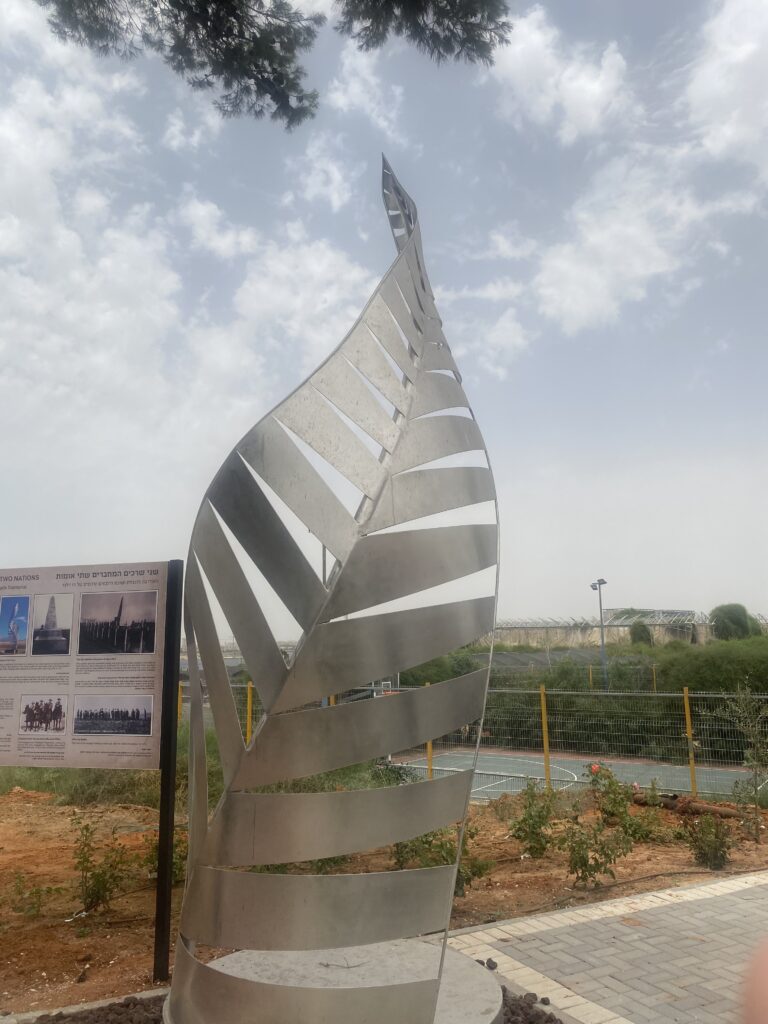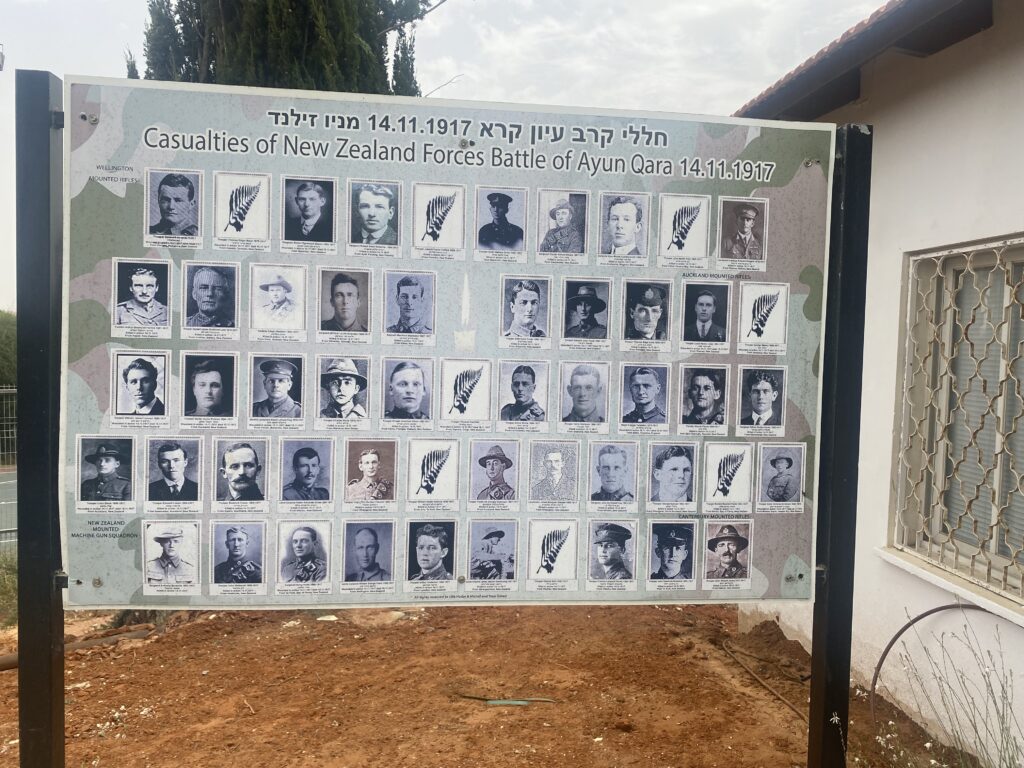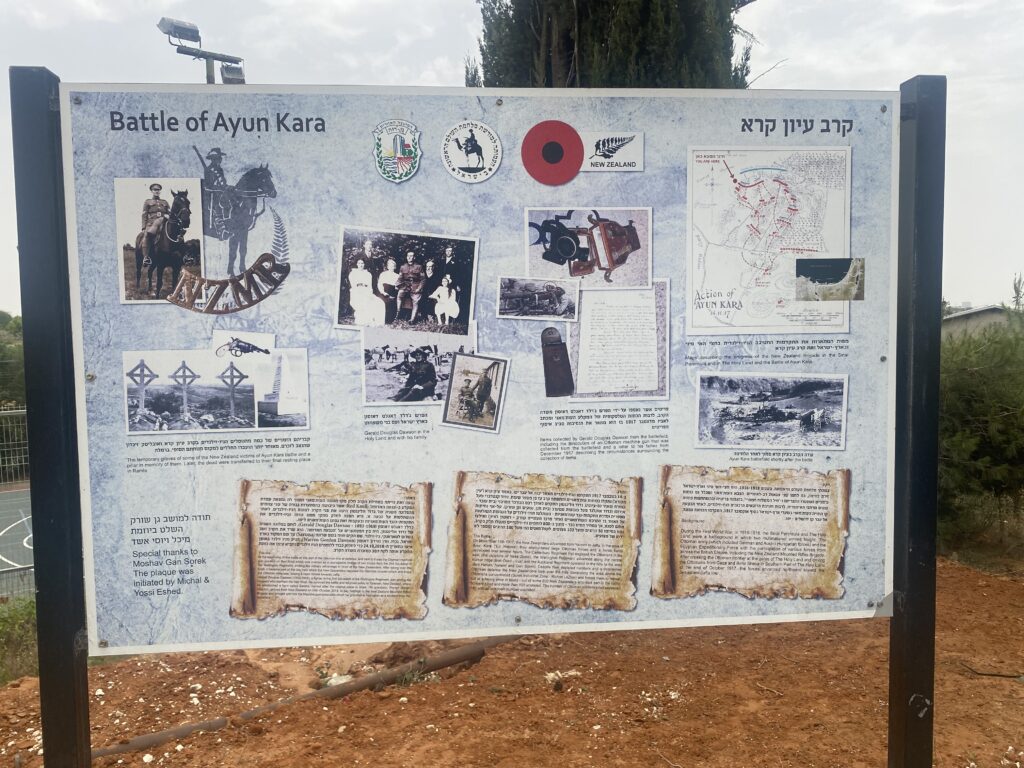In 1917, the ANZACs invaded Palestine to fight the Ottoman Army and, after the third Battle of Gaza on October 31, successfully took control of the land and the people in the name of the British Empire. This paved the way for what ultimately became the Allied victory in WWI.
From this came the establishment of the British Mandate in Palestine, and ultimately the establishment of Israel.
This irrefutable history, is apparently being refuted and reconstructed by pro-Palestinian teachers in Australia.
In response, opposition veterans’ affairs spokesman Barnaby Joyce blamed the Albanese government for the “rise of anti-Anzac sentiment’’. “They are watering down the seminal day of the soul of our nation, which is Anzac Day,’’ he said. “If you live in this nation and benefit from the freedoms of this nation, then you better respect the people who fought and died, and those who were maimed, and their families who got turned upside down to give today’s generation the right to live life with all of our freedoms and liberties.’’
Israel is rich in ANZAC history, inclusive of the restored and famous Park of the Australian Soldier at the final resting place for those ANZAC’s that made the great Light Horse Brigade cavalry charges to win the town of Be’er Sheva during WWI.
In 2020, Australian Ambassador Paul Griffiths made the following remarks at the Battle of Beersheba Commemoration:
On 31 October 1917, almost 103 years ago to the day, young Australian light horsemen faced an uncertain future. Some British and ANZAC objectives had already been achieved, but Beersheba was still in the hands of the Ottomans with only a few hours of daylight remaining.
Private Walter Mundell Keddie chronicled: “We began to talk among ourselves saying Beersheba will be taken and us not doing anything when about 5 o’clock our major came and said that Beersheba had not been captured but we were going in.”
Under the command of Lieutenant General Harry Chauvel, the men of the 4th and 12th Light Horse regiments were ordered to carry out a bold cavalry charge with the aim of taking control of Beersheba and securing the town’s wells before dark. The charge was unusual in that as Light Horse they did not dismount to fight, but rather were to run over the top of the Ottoman positions armed with bayonets and not the sabres of traditional cavalry.
Despite being outnumbered, the ANZACs’ daring mounted charge was a success – ensuring the capture of Beersheba and significantly impacting the course of the Sinai-Palestine Campaign.
Upon receiving the orders for the cavalry charge, Captain Jack Davies stood up from his saddle and roared: “Beersheba next stop!” These soldiers had fears about their fate and their futures, but they continued to gallop. Under adversity and heavy fire, they galloped on.
Far from their families and friends, they kept going until the mission was complete. The ANZACs displayed courage, mateship, persistence, and leadership during this crucial battle and throughout the First World War.
The 1241 Commonwealth soldiers (175 Australian) buried here, the Beersheba War Cemetery, made the ultimate sacrifice in defence of those values and in service of their country.
The lessons of Beersheba don’t only reside in the history books or in the distant past, but are just as relevant to us standing here today.
Australian First World War correspondent and historian, C.E.W. Bean, wrote that the ANZAC spirit “stood, and still stands, for reckless valour in a good cause, for enterprise, resourcefulness, fidelity, comradeship and endurance that will never own defeat.”
During a recent visit to Israel, I chanced upon another small piece of ANZAC history, linked to the war veterans of my own family and their community. To see a dedicated memorial to the fallen New Zealand soldiers was most humbling and historically significant.
The site was a recently consecrated Silver Fern monument at Moshav Gan Sorek. The monument commemorates the 53 fallen New Zealand soldiers who fell at the WW1 Battle of Ayun Kara.

The Battle of Ayun Kara on November 14, 1917 is lesser known than the battles at Beer Sheva.
The story of the silver fern monument starts with Gerald Douglas Dawson, who fought in WWI as part of the New Zealand Mounted Rifle Brigade and 18,000 strong servicemen. As one of five soldiers stationed at a machine gun post at the site that is now Gan Sorek, Gerald was the only survivor. His surviving regiment was hosted at Sarona, an old Templar site which is now restored as a popular heritage site and market in metropolitan Tel Aviv. Having enjoyed the hospitality extended to him so much at his base, Gerald returned home to his farm in the Western Bay of Plenty, Omanawa, New Zealand, and named it “Sarona”.
In 2006, coincidentally the same time that Sarona in Tel Aviv was restored, Gerald’s grandson Warren subdivided the family property and named the residential precinct Sarona Park in honour of his grandfather. A sliver fern statue was erected as a monument to the WWI soldiers.
Fast forward to 2018, a century later, Yossi Eshed, an Israeli who was randomly travelling in New Zealand with his partner Michal lost their way. They stumbled across Sarona Park and were intrigued by the name. Taking some interest, Yossi met the owner Warren Dawson.
The result was a new friendship, a journey to Israel, and a lot of historic recovery of rare WWI relics. In partnership with the New Zealand Israel Friendship Association (NZILFA) Warren embarked on a project to replicate the Silver Fern memorial as a copy of the one in New Zealand.
The new Silver Fern monument at Gan Sorek was unveiled just a year ago on 30 April 2023, the culmination of many years of project activity. For the opening Yossi Eshed wrote “The silver fern is symbolic of determination and bravery in New Zealand, and this monument represents a bridge of friendship between the two peoples, located at two opposite ends of the world.”


This story is another small example of how Israel is simultaneously recovering history and building history. Of how people from places all around the world find their way to Israel with global connections from ‘the four corners of the earth’. Of how the ingathering from exile includes those from my small indigenous land of New Zealand, and of the tributes to their fellow countrymen who fought and fell in the most horrific of circumstances to allow for the very existence of modern Israel to occur.
Their sacrifice is our blessing and their legacy is the virtue of freedom that we enjoy today.
Under no circumstances can we allow ANZAC day to be politicised, or be subject to revisionist history.
Lest We Forget.
